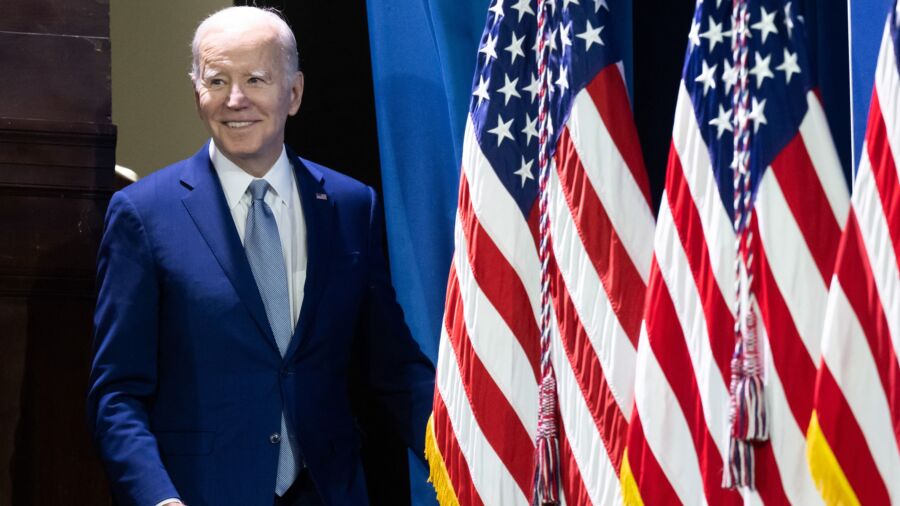President Joe Biden signed on March 20 a GOP resolution overturning a Washington, D.C., crime bill.
The GOP-controlled House and Democrat-controlled Senate both passed the resolution on a bipartisan basis and Biden expressed that he would sign the bill, pitting himself against progressives and his own belief that the District of Columbia should be a state. The conundrum also put Biden on the spot amid GOP criticisms of his fellow Democrats being soft on crime. The city’s Democrat mayor, Muriel Bowser, vetoed the bill—only for the city council to override her veto. The resolution was the first time in decades that Congress voted to override a D.C. bill.
“I support D.C. Statehood and home-rule – but I don’t support some of the changes D.C. Council put forward over the Mayor’s objections – such as lowering penalties for carjackings. If the Senate votes to overturn what D.C. Council did – I’ll sign it,” posted Biden on Twitter on March 2. This was a reversal from the administration saying that Biden would veto the resolution.
In a Jan. 4 letter to D.C. Council Chairman Phil Mendelson explaining her veto of the Revised Criminal Code Act of 2022 (RCCA), Bowser lamented that the bill “reduces sentences for illegally carrying a gun on our streets … [reducing] the maximum penalty from 15 years [behind bars] to four years.”
Bowser, citing U.S. Attorney for the District of Columbia Michael Graves, also wrote that the measure “will prevent charging many persons convicted of felonies under current law—including armed robbery—with possession of a firearm by an unauthorized person under the RCCA.”
Bowser also lamented that “the council substantially reduced penalties for robberies, carjackings, and home invasion burglaries.”
Under the code, the mandatory minimum penalty for first-degree murder would have remained 24 years in prison but the maximum would have been reduced from life behind bars to 51 years in prison. The penalty for first-degree murder would be 57 years if the defendant was already charged with a crime committed murder while on release. All other mandatory minimum sentences would have been done away with under the code.
The act would have also allowed juries to decide misdemeanor cases.
Biden’s veto comes as the District of Columbia has experienced an overall 23 percent increase in crime as of March 21, according to the Metropolitan Police Department. There has been a 7 percent increase in homicides, a 111 percent increase in sex abuse, a 105 percent increase in motor vehicle theft, a 17 percent increase in theft from auto, a 17 percent increase in other kinds of theft, and a 400 percent increase in arson.
Despite this overall increase in crime in the nation’s capital, there has been a 3 percent decrease in violent crime, according to the MPD. There has been a 3 percent decrease in assaults with a deadly weapon and a 7 percent reduction in robberies. There has also been a 21 percent decrease in burglary, which is not classified as a violent crime.
From The Epoch Times

